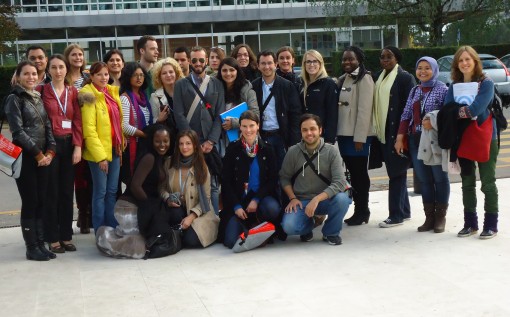Founded in 1999, the International Health Master’s degree programme at the Charité university hospital in Berlin focuses on poverty-related health problems in developing and threshold countries. The curriculum integrates elements from healthcare, epidemiology, tropical medicine, as well as economics and management. In the following interview, programme director Dr. Matthias Borchert talks about some of the distinguishing features of the programme and the career opportunities open to programme graduates.
What is special about the International Health programme?
The diversity. The students come from all around the world – from Europe, Asia, Africa, North America, Latin America and Australia. This kind of diversity in a degree programme at a German university is rare. Our teaching staff is also international. Along with our German colleagues, we also have lecturers from around Europe and overseas. So it’s a broad spectrum of expertise.
How does the diversity inform the actual teaching?
The incoming students have worked in the healthcare industry in their home countries. They each bring different experiences with them and our instructors make sure to integrate this into the discussions. Both students and instructors greatly benefit from this interchange and shared experience. Working together with their programme colleagues, students develop new approaches for their work back home.
Do concepts of health vary among such a diverse group of students?
The World Health Organization (WHO) provides a broad and universal definition of health. At the same time, health issues and challenges vary according to country. There are tropical diseases in Africa, for example, that do not exist in Asia. But despite these differences, the students realize time and again that, regardless of language, culture or religion, public health challenges around the world tend to be more similar than different.
Back in their home countries, many students will not have access to the kinds of equipment used at the Charité. How can they then apply what they’ve learned in Berlin?
Our focus area is public health, so instruction does not emphasize the use of medical technology or devices. For most students, a focus on high-tech medicine would not be helpful and probably be more frustrating than anything else. We make sure to prepare them for the much simpler medical facilities used in hospitals and doctors’ offices back home. For example, an expert might present a very simple laboratory. Management training is also effective. Students learn, for example, how to organize a healthcare system on the district level in a way that responds to the needs of the local population.

Photo: Postgraduate Study Program “International Health”, Institute of Tropical Medicine and International Health, Charité-Universitätsmedizin Berlin
What kind of career opportunities can graduates of the programme expect?
Many graduates continue working in their jobs as doctors, nurses or midwives. They might also take part in assistance programs like “Doctors Without Borders”, providing medical care to patients in the field. Others might work for organizations such as the WHO, UNICEF or Germany’s GIZ (international cooperation organisation) directing programmes to combat diseases, such as HIV, in certain world regions and providing consulting services to the responsible government ministries.
How does the programme contribute to successful development in developing and threshold countries?
Our programme trains professionals coming from these countries. And after completing the programme, graduates return to their home countries to continue working. A recent alumni study showed that many graduates climb several steps up the career ladder after returning home. This is important, of course, if graduates are going to affect change in their home countries. Only in positions of leadership can they implement what they have learned in the programme and contribute to improved public health in their home countries.





